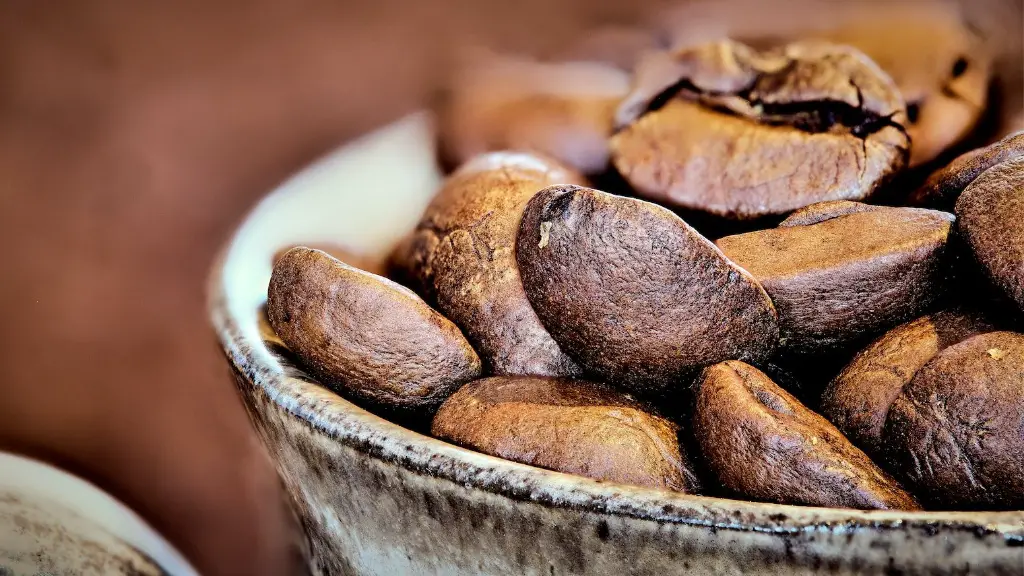Background
The alkaline diet is a dietary lifestyle that is based on the premise that consuming a diet filled with foods that have a pH value in the alkaline range can help protect oneself from certain health conditions. The premise of the diet is that eating an alkaline diet can help restore the natural pH of the body and reduce the risk of developing conditions like cancer, arthritis, and diabetes. Proponents of the alkaline diet also claim that it can help with weight loss and make a person feel more energetic.
Coffee and Alkaline Diets
Coffee is widely consumed around the world, and many individuals enjoy a cup of coffee in the morning or as a mid-afternoon pick me up. However, coffee is typically not recommended as part of an alkaline diet due to its acidic nature. Coffee has a pH value of between 5 and 6 and is considered to be acidic. Thus, it is not recommended to be consumed as part of an alkaline diet, as it can cause a disruption to the natural pH balance of the body.
Potential Alternatives
Although coffee is not recommended as part of an alkaline diet, there are alternatives that can provide individuals with a similar experience. For example, teas such as green or black tea are excellent substitutes for coffee and can provide the same energy boost without disrupting the body’s pH balance. Additionally, there are a number of herbal teas that are also considered to be alkaline and can provide the same energy rush without the acidic effects of coffee.
Potential Benefits
The alkaline diet is based on the premise that consuming a diet filled with food that are considered to be alkaline can help protect an individual from certain health conditions. Thus, it could be beneficial for those looking to keep their body in a more balanced state. Additionally, those on an alkaline diet may experience better digestion, increased energy levels, and improved mental clarity.
Risks
While there are potential benefits to following an alkaline diet, it is important to note that it is not a recommended dietary guideline by the majority of health professionals. Some experts argue that there is not enough evidence to support the claims that the diet can protect people from certain health conditions. Additionally, consuming too much alkaline foods could disrupt the natural pH balance of the body and have negative health impacts.
Conclusion
In conclusion, while the alkaline diet may have potential benefits, it is important to note that coffee is not recommended as part of an alkaline diet. However, there are alternatives such as herbal teas and green or black tea that can provide the same energy boost without disrupting the body’s pH balance. As with any dietary change, it is important to consult a health professional before making any drastic changes to your diet.
Potential Foods to Include in an Alkaline Diet
One of the main components of an alkaline diet is consuming foods that are considered to be alkaline. These types of foods are typically fruits, vegetables, nuts, and grains. Fruits such as lemons, limes, and oranges, are considered to be alkaline and are great additions to an alkaline diet. Vegetables such as spinach, broccoli, kale, and cauliflower are also good additions and can provide individuals with essential nutrients and vitamins. Additionally, nuts and grains such as quinoa, millet, and almonds can be added to the diet to provide a boost of energy.
It is important to note, however, that certain foods should be avoided when following an alkaline diet. These include processed foods, dairy products, and red meats. Additionally, it is important to limit the consumption of caffeine, alcohol, and sugary drinks as they can all be disruptive to the natural pH balance of the body.
It is important to remember that following an alkaline diet does not necessarily guarantee one’s protection against certain health conditions. However, it is also important to note that there can be potential benefits to following this type of diet, such as improved digestion and increased energy. Nevertheless, it is best to consult with a health professional before making any drastic changes to one’s diet.
Recommended Servings
When following an alkaline diet, it is important to ensure that one’s portions are in balance. Generally, individuals should aim for two to three servings of fruits and vegetables per day, as well as two servings of nuts and grains. Additionally, it is important to note that many of the recommended fruits and vegetables should be consumed in their raw form, as cooking can reduce the alkaline content of the foods.
In addition to the recommended portions, individuals should also make sure to drink eight to ten glasses of water per day. Drinking water can help to flush out impurities and keep the body hydrated, which can be beneficial for those on an alkaline diet. Additionally, individuals should make sure to exercise regularly as this can help reduce stress and improve overall wellbeing.
Furthermore, it is important to bear in mind that an alkaline diet should not be considered as a replacement for balanced nutrition. This type of diet should be used in addition to a balanced and nutritional diet to ensure that the body is receiving all the essential nutrients it needs. Additionally, those on an alkaline diet should consult with a health professional to make sure that the diet is suitable for their needs.
Supplements for an Alkaline Diet
Although an alkaline diet can consist of foods that are naturally rich in Alkaline, there are certain supplements that can be taken to ensure one is getting the necessary amount of alkaline. Some of the most common alkaline supplements include potassium, magnesium, and calcium.
These minerals are essential for the body to maintain a balanced pH level and to keep the body healthy. Additionally, there are a number of alkaline drops that can be taken to help maintain the alkalinity of the body.
It is important to note, however, that it is not recommended to take large doses of alkaline supplements as this could disrupt the normal pH balance of the body. Additionally, it is important to consult with a medical professional prior to taking any supplements to determine if it is suitable for one’s individual needs.
Tips to Make an Alkaline Diet Easier
It can be difficult to maintain a balanced alkaline diet, however, there are some tips that can make it easier. One of the best ways to stick to an alkaline diet is to make sure to plan meals in advance. Additionally, it is important to ensure that one’s daily meals are balanced and to avoid overindulging in high-alkaline foods.
Moreover, it is important to make sure to get enough rest and to be mindful of the ingredients in the foods one is consuming. Furthermore, it is important to limit the consumption of caffeine, alcohol and processed foods. Additionally, it is important to try to eat organic foods as often as possible, as this can help to reduce the amount of toxins entering into one’s body.
Finally, it is important to stay hydrated by drinking eight to ten glasses of water per day, and to exercise regularly to ensure that one’s body is getting the necessary nutrients to stay healthy and balanced.




